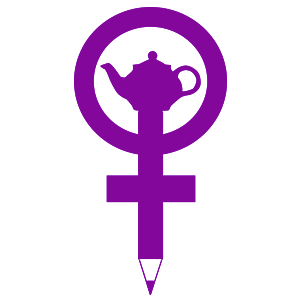
When I realised that AI was becoming a “thing”, that it was being developed for use in the real world, I desperately wanted it to evolve as a benevolent influence – a force for good. Unfortunately, all the science fiction I’ve ever read suggests such an idea runs counter to reality’s harsh grain. The truth we all must face is that Humanity is in a bit of a mess. The more we attempt to improve our situation via machines, the worse the mess becomes.
It’s impossible to create something good from the perspective of a power-hungry megalomaniac. The likelihood of anyone currently working in AI producing something humanitarian is extremely remote.
Just for shits and giggles (not necessarily in that order), I searched online for “modern day megalomaniacs”. Mainly because the world appears to be overrun by power-crazed despots, a surfeit of money spilling from overstuffed trouser pockets as they run riot in the modern world. Unsurprisingly, the likes of Kim Jong-un (rhymes with wrong-un), and the ubiquitous poster boy for declarative nonsense on social-media, Donald Trump, were high on the list. Yet what of Murdoch, Gates, Musk, and Bezos? Surely, they also fit the description. What of the billionaire Barclay brothers, non-domiciled owners of the Telegraph, an unmitigated right-wing mouthpiece for Westminster’s current overlords. What of Blackrock and other anonymous corporations whose insidious ownership of most of the world’s assets is opaque and sinister?
What about the arts?
Forgive my paranoia (or not, as you choose). Uncontrolled AI is dangerous. It could become a tool to control the masses. So far, the consequences seem rather grim, especially for anyone in the arts who likely works for a pittance. In recent times the balance of power has shifted to accountants, authorities, and corporations. Consequently the increasingly thin layer of funding cushioning so many organisations, individuals and projects has been unceremoniously ripped away, apart from a few slender strands of hope.
If unconstrained, AI will further undermine creative endeavour until, much like present day popular music, anything we consider ‘creative’ will rapidly devolve into a recursive, derivative echo of what it once was. People visiting museums may wonder how such works were made, oblivious to the issues. One of the main problems is that art and music are seldom taught in cash-starved schools, where academia has become the focus. Creativity be damned.
In a society where creativity is not valued, will wall-based crayon renditions of family scenes become a thing of the past? Will infants scribbling on paper (which could progress to portraiture or graphic or fine art, or writing) become little more than a distant memory? Could AI-controlled software replace a child’s creative output with its own sub-standard composite which, knowing no better, the child will accept as all that is possible?
Can we beat the system?
On a more positive note. There is rebellion at every level! Efforts are underway to protect creativity, in all its forms, from the march of AI’s relentless mimicry. Organisations supporting writers, artists, musicians, and others are fiercely resisting the algorithmic abominations stamping their synthetic feet outside the city walls.
They and we must insist that Intellectual Property, copyright, and other forms of ownership are robustly protected against artificial appropriation. Many competitions, websites and publications no longer accept work created using AI, insisting that the creator must be a human, not a machine.
Though I won’t hold my breath until the metaphorical AI smoke clears (all that going blue and passing out is way too dramatic), the omens are positive.
Skynet will not win.
Commonsense and humanity could still prevail.
